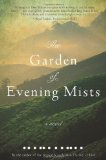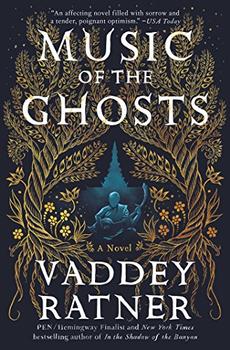Summary | Excerpt | Reviews | Beyond the book | Read-Alikes | Genres & Themes | Author Bio

Malaya, 1951. Yun Ling Teoh, the scarred lone survivor of a brutal Japanese wartime camp, seeks solace among the jungle-fringed tea plantations of Cameron Highlands. There she discovers Yugiri, the only Japanese garden in Malaya, and its owner and creator, the enigmatic Aritomo, exiled former gardener of the emperor of Japan. Despite her hatred of the Japanese, Yun Ling seeks to engage Aritomo to create a garden in memory of her sister, who died in the camp. Aritomo refuses but agrees to accept Yun Ling as his apprentice "until the monsoon comes." Then she can design a garden for herself.
As the months pass, Yun Ling finds herself intimately drawn to the gardener and his art, while all around them a communist guerilla war rages. But the Garden of Evening Mists remains a place of mystery. Who is Aritomo and how did he come to leave Japan? And is the real story of how Yun Ling managed to survive the war perhaps the darkest secret of all?
The novel's focus isn't strictly on plot but instead on creating a kind of metaphorical "mist" that only gives glimpses of forgotten memories. Some might find the book slow-going as a result, but the immersive experience of terrific writing about time and place more than compensates. The book is so rich in evocative detail and so steeped in its sense of place that it is hard not to be swept along for the ride...continued
Full Review
 (694 words)
(694 words)
(Reviewed by Poornima Apte).
The Japanese gardener Nakamura Aritomo in The Garden of Evening Mists is an accomplished ukiyo-e artist. This art form, like most others, was a product of time and place but ukiyo-e was especially so.
Hundreds of years ago (1615-1868) the Tokugawa shoguns ruled Japan according to a strict class-based, hierarchical society. They made Tokyo (then known as Edo) their capital and the city grew to be a thriving and vibrant one. The Tokugawa placed warriors such as themselves first, followed by farmers, artisans and merchants. The artisans and merchants were considered lower classes and were subject to severely repressive laws that governed how they dressed and lived. The shoguns understood, however, that the merchant class was a particularly ...

If you liked The Garden of Evening Mists, try these:

by Olivia Laing
Published 2025
Inspired by the restoration of her own garden, "imaginative and empathetic critic" (NPR) Olivia Laing embarks on an exhilarating investigation of paradise.

by Vaddey Ratner
Published 2018
This "novel of extraordinary humanity" (Madeleine Thien, author of Do Not Say We Have Nothing) from New York Times bestselling author Vaddey Ratner reveals "the endless ways that families can be forged and broken hearts held" (Chicago Tribune) as a young woman begins an odyssey to discover the truth about her missing father.